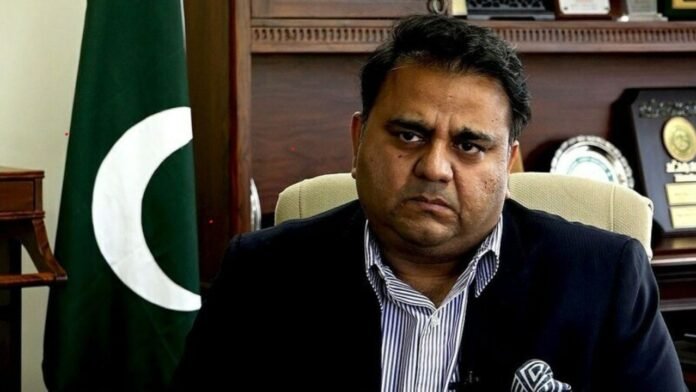Islamabad High Court Chief Judge Farooq asked the Ministry of Interior to add one of its officials in a capacity as an individual to remove former federal minister Fawad Chaudhry’s name from the list of restricted travelers. “Who made these lists? Why can Fawad Chaudhry not come back?” the chief justice said, addressing the deputy attorney general. “He has to return within three or four weeks.” Meanwhile, Fawad Chaudhry sat in court with his lawyer. Justice Aamer’s first question was whether his name was on ECL or PNIL.
This case is simple, but you’ve made it complicated. You also challenged the PNIL law. Having disputed the law, however, the Deputy Attorney General will probably have to issue a notice now. Chief Justice remarked, “Anyway, I am allowing everyone to go out because it is summer, and everybody goes out during summer. The government has put names on this air travel restriction list.” The court adjourned until July 9.
The legal scrutiny surrounding Fawad Chaudhry, marked by his presence at courts with lawyers, depicts how personal and political issues can be interwoven in such cases.
Chief Justice Aamer Farooq’s inquiry into whether Fawad Chaudhry’s name exists on ECL or PNIL shows that judges act as gatekeepers, ensuring due process and administrative transparency. By questioning legal complexities related to this issue and challenging regulations made for PNILs, the CJ shows a judicial commitment to protecting constitutional rights, including procedural fairness.
This indicates that they will resolve the ambiguities regarding laws and international traveling restrictions by reviewing governmental actions until early next month, when they will hold another hearing over travel ban litigation. Within this timeframe, more deliberations can take place, thus possibly resolving their situations better.
Following the contestation of PNIL law, the deputy attorney general must issue a notice that can signal legal movements. It may shape future applications and interpretations of similar laws regarding travel restrictions within Pakistan. These challenges are not merely about individuals but also about setting legal templates for governance systems.
On a broader scale. The government’s inclusion of names in such lists represents administrative measures for controlling movement and ensuring national security. However, it also brings about judicial review as an avenue through. Which individual rights are protected and unfair use of power prevented.
Chief Justice Aamer Farooq allowed people to go out during the summer season. Reflects his realist legal approach while maintaining legal scrutiny. Such an attitude demonstrates that this judge is keen on ensuring transparency and accountability in governance and rule-making.
The interaction between legal proceedings and political implications underscores this. The judiciary’s pivotal role in upholding the rule of law and constitutional rights. The case against Fawad Chaudhry illustrates this. How judges check on executive powers so that they operate consistently with statute law and just procedures.
These court procedures are based on continuing attempts by the Pakistani Judiciary to conclude complex litigation issues within broader questions. The management of governance structures and their impact on human rights within Pakistan. This case outcome and. Other striking events will shape how we view travel restrictions, immigration controls, etc. Under the existing regime for many years.


